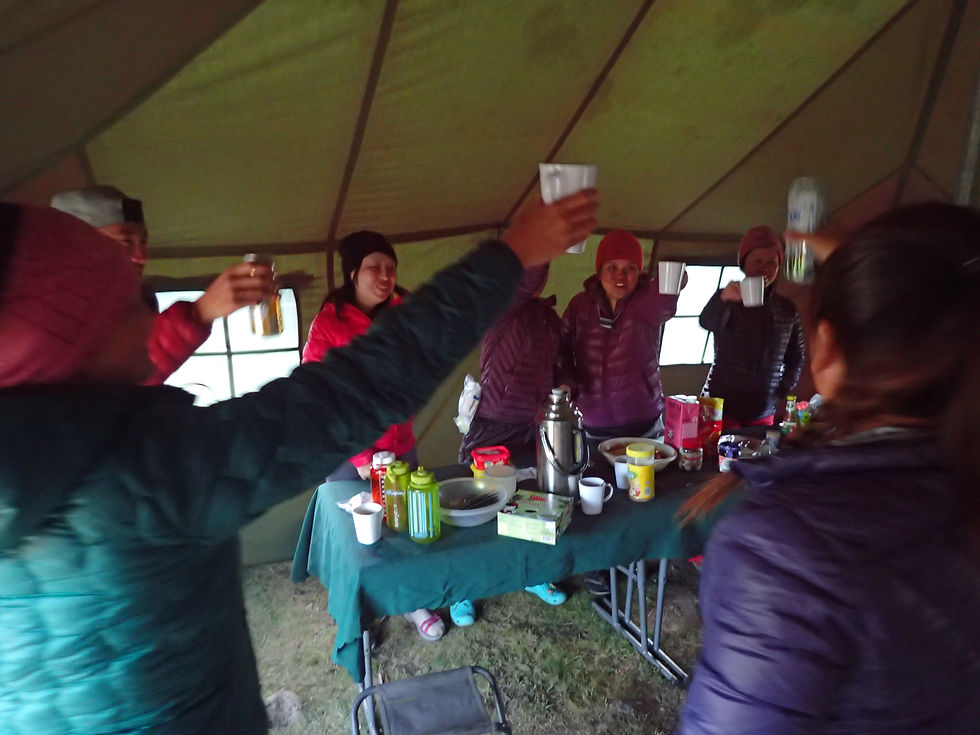In search of purpose: Empty your cup
- Oct 13, 2017
- 1 min read



<emptying our cups of “tea” at basecamp Malchin Peak/Mount Khuiten, and Ulaanbaatar Mongolia>
There is an oft-repeated story about a tea-pouring monk who had a reputation for being very wise. The monk would pour tea for visitors who came to seek his wisdom. Each time, he would pour until the tea overflowed the tea cup, causing his visitors to wonder if the monk was really wise or just had a bad sense of not knowing when to stop.
After drenching his visitors with tea, the wise monk would say “Your mind is like that overflowing tea cup, so full of opinions and preconceived notions! You must first learn to empty your minds before you can gain wisdom”. Of course, not all the visitors were amused at being scalded by hot tea, and but they understood the deep meaning of the monk’s words. They knew they had to unbelieve in order to believe. And not quite a few of them went on to establish their own Overflowing Tea Cup schools of wisdom.
The phrase “I think, therefore I am”, attributed to René Descartes, a French philosopher, mathematician, and scientist, shows how difficult it is to empty our minds.
Descartes believed that that he couldn’t not believe that he exists because he was the one who didn’t believe he exists in the first place.
We fill our minds with so much convoluted thinking that we don’t need a tea pouring monk to mess us up. We are already messed up.
“Emptiness the starting point. My friend, drop all your preconceived and fixed ideas and be neutral. Do you know why this cup is useful? Because it is empty.” - Bruce Lee

Comments